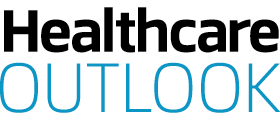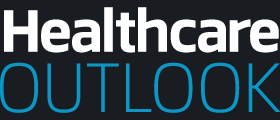Uganda Healthcare Federation (UHF) have been redefining and consolidating the country’s private healthcare sector since 2010. Through the understanding that improving Uganda’s healthcare is a collective endeavour, their unifying vision demonstrates that there really is, strength in numbers.
INTRODUCTION
Grace Ssali Kiwanuka, Executive Director at the Uganda Healthcare Federation (UHF)
“We find that dialogue amongst all categories and stakeholders fosters creative solutions to several mutual and at times persistent challenges,” comments Grace Ssali Kiwanuka, Executive Director at the Uganda Healthcare Federation (UHF).
UHF was born from a need to consolidate and unify PHPs (private health providers) and healthcare professionals across Uganda.
An affiliate of the East Africa Healthcare Federation and now a key contributor to the Ministry of Health, particularly concerning public-private partnerships, the federation was established as the representative umbrella body for Uganda’s private healthcare sector in 2010.
The body’s aim remains to this day, to improve quality healthcare within the private sector across Uganda, with an emphasis on affordability and accessibility.
Ms. Kiwanuka found her way into the sector after working across the globe for prestigious organisations including Saatchi and Saatchi, and skincare brand Olay.
“I stepped into the Uganda private health sector as the Customer Care Manager at a health insurance company charged with membership retention and growth,” she tells us.
It was this invaluable experience that introduced Kiwanuka to the challenges of the “fast-paced” private sector, equipping her with the necessary skills to eventually excel at UHF.
“It was interesting work trying to understand the challenges of private healthcare, struggling with the bottom line, challenges around patient needs…examining clinical shortcomings and addressing technical issues,” Kiwanuka comments.
Transitioning into consulting work after a decade at leading medical service provider AAR Healthcare gave Kiwanuka the opportunity to direct her efforts where they were most needed.
“I enjoyed the freedom of selecting challenging projects that required a deep understanding of the intricacies of the functioning of the private sector,” she comments.
Subsequently, Kiwanuka was invited to join the board at UHF by then Director, Dr. Ian Clarke. After initially accepting a role as interim Executive Director, she has stayed there ever since.
UHF now advocates for increased capacity within the sector and champions the interests of private healthcare on international forums and as a member of wider organisations, such as EAHF and sister federations in neighbouring countries including Tanzania, South Sudan, Ethiopia, Kenya and Rwanda.
The Federation’s remit is wide and an impressive roster of organisations benefit from representation and advocacy under their patronage.
“UHF has a membership of over 59 health-related associations and organisations representing different types of private health facilities, a full range of health professionals delivering private healthcare, social franchises, private medical training institutions, private pharmaceutical manufacturers, distributors and retail pharmacies. UHF membership also includes civil society partners such as organisations representing community health mobilisers and health consumer advocacy,” she explains.
Kiwanuka goes on to outline the Federation’s crucial role, particularly in bridging the gap in communication between the public and private components of the sector.
“UHF’s core activities focus on building private sector capacity to offer affordable, accessible and quality healthcare services; coordinating private sector groups activities around key health interventions; consolidating and representing private sector interest in health policy and planning; lobbying and advocating for policy change that benefit their members and facilitating public-private dialogue on key policy issues.”
Today, the Ugandan Government increasingly recognises the role of the private sector in national development and poverty eradication through the implementation of various national policies, such as the National Health Policy and the National Public-Private Partnerships in Health (PPPH) Policy.
The conflation between public and private can be an additional source of complication for the sector.
“There is always an assumption that works in public facilities will simply be replicated in private facilities, yet the structures and operations are quite often very different,” she comments.
Cohesion is key – fragmentation within the sector as a whole can represent a serious impediment to development and undermine collective efforts towards the general advancement of Uganda’s healthcare.
The potential for increased capacity is evidenced by the progress of the private sector in recent years as it has enjoyed exponential growth and become an exciting, dynamic field to work in – as Ms. Kiwanuka confirms.
“The rate of growth in the private sector is at over 400 percent in the last 15 years – this is not just a reflection of the breadth of investment going into health, but this growth also considers developments in the ICT, pharmaceutical and manufacturing sub-sectors that are outstripping the trends in our human resources in health growth.”
As one of the hundreds of non-governmental organisations within the sector, UHF’s unique, unifying vision sets them apart.
“No other body has a sole focus on bringing the private sector together. There is also no other entity with a focus on lobbying and advocating in the interests of the private sector with all activities, programmes and initiatives solely targeting building capacity in the private health sector, creating networking opportunities and exploring areas for collaboration and convergence especially with the not-for-profit sub sector,” she adds.
By establishing a network united by one body, UHF overcomes geographical complications and casts its net wide.
“While UHF is based in Kampala, we reach the rest of the districts across the country through our members, therefore we are able to implement activities with minimal operational cost pressures and can promise longevity beyond programme life because we use existing teams and structures,” Kiwanuka informs us.
Another way in which the federation tackles the three major problems facing the sector; namely medical access, underfunding and a lack of resources, is to procure financial support.
“Access to affordable financing has hampered the development and growth of Uganda’s private health sector. UHF has been engaging development partners and with support of the Ministry of Health and the Ministry of Finance, the federation is in the early stages of establishing a revolving fund to pilot availing micro-loans to private health businesses. The loans will be for equipment or facility improvements guided by a quality improvement plan.
We believe that with financial support the Uganda private health sector not only improve quality but to expand the scale and scope of services available through the private sector.”
OVERCOMING THE PANDEMIC
Of course, Uganda has not been spared by the omnipresent coronavirus and the pandemic has impacted the country’s healthcare services significantly. At the time of writing, Uganda has recorded 40,300 cases, resulting in 334 deaths.
“The pandemic has not been as disruptive for the federation as much as it has been for our members. It has actually been a time when we have found ourselves more relevant than ever before,” explains Kiwanuka.
This is when the benefits of a representative umbrella body become obvious, specifically its crucial role in safeguarding and advocating for the interests of its members.
“Our members are experiencing business closures due to lack of clients, increased costs in doing business to be compliant with infection prevention and control measures coupled with drops in revenue for periods longer than they can sustain,” she tells us.
UHF’s response to the pandemic has been proactive in ensuring the sector’s representation within the country’s strategic response.
“As the federation we have been lobbying the Ministry of Health for inclusion of the private sector in the national response, supporting members that have expressed interest in contributing to the national response to be heard and assisted.
We have also secured support from ThinkWell, IFC World Bank and AERC to build capacity to respond to the pandemic through knowledge sharing and information sessions as well as development, including a cascade of training and IEC materials tailored for the private sector,” Kiwanuka informs us.
Ensuring that their members are kept as well-informed as possible is essential. The federation’s accessible approach encompasses not just rights to healthcare, but crucially also extends to education – arguably the most effective preliminary route to preventing and managing disease.
As such, UHF are putting to good use several technological advancements that have been developed against the backdrop of the pandemic.
“We are now focused on leveraging the innovations and technology that has resulted from the pandemic pressure. We are looking to use these to improve not only safely providing quality health services, but to expand the scale and scope of services available through the private sector and the necessary efficiencies that will enable continuity of essential health services at community level in the COVID-19 context,” Kiwanuka explains.
This is evidenced primarily through UHF’s free access e-learning platform which is used to enforce corporate social responsibility practices.
“We strive to equip the platform with Ministry of Health approved content. We have ensured it has modules that will appeal to both the technical and non-technical and we continually engage partners to share content with us to digitise and upload.”
Kiwanuka goes on to comment how the implementation of this technology has already made significant developments in the sector, specifically with the collation of invaluable data to analyse and identify specific needs or areas of improvement within private healthcare.
Strides made within the private sector have opened up crucial avenues for strategic development, specifically newfound possibilities of critical self-evaluation and analysis within the federation.
“I am particularly proud of the progress made in catalysing the private health sector to take up self-assessment. At UHF, we have been championing self-assessment as a resource-efficient alternative to prescriptive support supervision that has historically been a fault-finding activity. Through self-assessment, the private health sector has been empowered to better prepare for regulatory compliance and now has a better understanding of standards and quality assurance for quality improvement in service delivery,” she explains.
“UHF has coordinated over 700 facilities to self-assess voluntarily across the country and is in the process of enrolling a further 1,300 private facilities in the recently upgraded digital platform. Through the Self-regulatory Quality Improvement System (SQIS), the health sector now has a central repository of data and statistics to better understand the profile of the private health sector,” Kiwanuka concludes.


This data has been put to good use in order to further the education of federation members and partners, culminating in the aforementioned e-learning tool to provide information on various aspects of service delivery including business and finance management.
Another example of the importance that UHF places on education are their initiatives launched in partnership with private funders.
“We are currently working with support for the IFC World Bank through the Global Financing Facility to train as many private health sector workers on the provision of essential health alongside the management of COVID-19. This is particularly exciting because our focus is not on empowering large urban facilities, we are targeting community level facilities where vulnerable populations ordinarily consume services,” Kiwanuka comments.
The federation is two years into another ongoing project – a five-year plan dedicated to improving Maternal Child Health and Nutrition Activity in private facilities.
“What is unique and inspiring about this activity is that it is enabling us to influence key touchpoints in private facilities that are often neglected in programming such as strengthening leadership and governance through health system interventions such as monthly dialogue platforms for the private sector. We are spearheading improving data reporting in over 900 private facilities into the national database, no other programme has had a lens so closely focussed on the private sector,” she informs us.
Currently, UHF continues to expand its ever-increasing network, extending its all-encompassing reach across the country whilst honing in on the most prevalent issues.
“The federation has grown the team specifically to broaden our activities beyond quality of care generally to put a lens on supporting the private sector in relation to malaria, TB, supply chain plus maternal, child health and nutrition services,” Kiwanuka comments.
As our conversation draws to a close, Kiwanuka comments, “This is health – there is always something and we are in constant flux as priorities and policy shift.”
Of course, it is a constant battle, but the sector is nothing if not robust.
























